
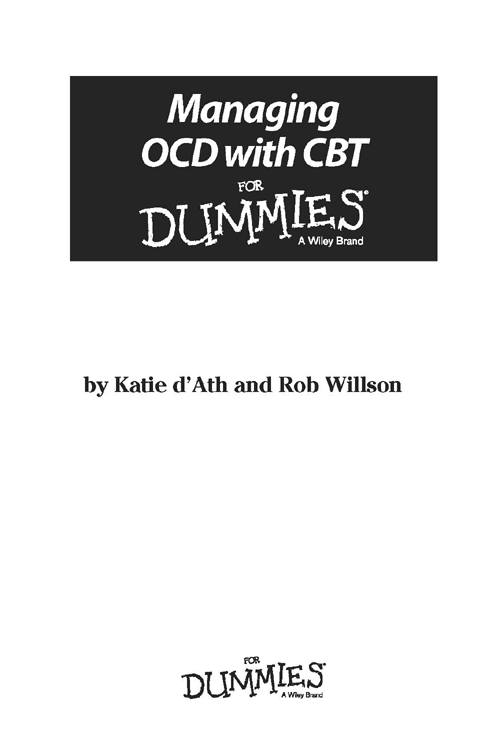
Managing OCD with CBT For Dummies
Published by: John Wiley & Sons, Ltd., The Atrium, Southern Gate, Chichester, www.wiley.com
This edition first published 2016
2016 John Wiley & Sons, Ltd, Chichester, West Sussex.
Registered office
John Wiley & Sons Ltd, The Atrium, Southern Gate, Chichester, West Sussex, PO19 8SQ, United Kingdom
For details of our global editorial offices, for customer services and for information about how to apply for permission to reuse the copyright material in this book please see our website at www.wiley.com .
All rights reserved. No part of this publication may be reproduced, stored in a retrieval system, or transmitted, in any form or by any means, electronic, mechanical, photocopying, recording or otherwise, except as permitted by the UK Copyright, Designs and Patents Act 1988, without the prior permission of the publisher.
Wiley publishes in a variety of print and electronic formats and by print-on-demand. Some material included with standard print versions of this book may not be included in e-books or in print-on-demand. If this book refers to media such as a CD or DVD that is not included in the version you purchased, you may download this material at http://booksupport.wiley.com . For more information about Wiley products, visit www.wiley.com .
Designations used by companies to distinguish their products are often claimed as trademarks. All brand names and product names used in this book are trade names, service marks, trademarks or registered trademarks of their respective owners. The publisher is not associated with any product or vendor mentioned in this book.
LIMIT OF LIABILITY/DISCLAIMER OF WARRANTY: WHILE THE PUBLISHER AND AUTHOR HAVE USED THEIR BEST EFFORTS IN PREPARING THIS BOOK, THEY MAKE NO REPRESENTATIONS OR WARRANTIES WITH RESPECT TO THE ACCURACY OR COMPLETENESS OF THE CONTENTS OF THIS BOOK AND SPECIFICALLY DISCLAIM ANY IMPLIED WARRANTIES OF MERCHANTABILITY OR FITNESS FOR A PARTICULAR PURPOSE. IT IS SOLD ON THE UNDERSTANDING THAT THE PUBLISHER IS NOT ENGAGED IN RENDERING PROFESSIONAL SERVICES AND NEITHER THE PUBLISHER NOR THE AUTHOR SHALL BE LIABLE FOR DAMAGES ARISING HEREFROM. IF PROFESSIONAL ADVICE OR OTHER EXPERT ASSISTANCE IS REQUIRED, THE SERVICES OF A COMPETENT PROFESSIONAL SHOULD BE SOUGHT.
For general information on our other products and services, please contact our Customer Care Department within the U.S. at 877-762-2974, outside the U.S. at (001) 317-572-3993, or fax 317-572-4002. For technical support, please visit www.wiley.com/techsupport .
A catalogue record for this book is available from the British Library.
Library of Congress Control Number: 2016930758
ISBN 978-1-119-07414-4 (pbk); ISBN 978-1-119-07415-1 (ebk);
ISBN 978-1-119-07416-8 (ebk)
Managing OCD with CBT For Dummies
Visit www.dummies.com/cheatsheet/managingocdwithcbt to view this book's cheat sheet.
- Table of Contents
Guide
Pages
Introduction
Welcome to the world of cognitive behaviour therapy (CBT) for obsessive-compulsive disorder (OCD). Becoming your own expert on OCD and how to overcome it helps whether you are processing a recent diagnosis, trying out some self-help, working with a therapist, taking medication or perhaps thinking of having another go at recovery. On average, a person waits ten years to get help for OCD, but people really do break free from it. We hope this book helps you do exactly that.
About This Book
We wrote Managing OCD with CBT For Dummies as a resource for people who are struggling with OCD in some way. Whether you have OCD yourself or you know someone who does, we want this book to help you understand the problem well and to show you how to help yourself (or someone else) tackle the problem.
Understanding OCD is the first step in creating change; know your enemy, and you can be well armed to fight against it. When you know the basics, you can create a clear picture of your own vicious cycle of obsessions and compulsions. In this book, we talk you through how to respond to your OCD differently and offer plenty of tips and practical advice to help you work toward your goal of overcoming OCD. But knowing the theory is unlikely to really change anything. You actually have to commit to (and stick with) experimenting with behaving differently if you want to see change. Its like learning a language; you can study all the grammar rules and even the vocabulary, but youre not going to become fluent unless you start using the language to communicate.
This book is not only about getting rid of OCD but also about recognising what you may be missing as a result of your OCD. It encourages you to look at the bigger picture and think about your life beyond OCD; it suggests you put more emphasis on enjoyable and rewarding activities so you can create the life you want to lead.
Between us, we have over 30 years of experience in helping people overcome OCD, and we have tried to stick closely to evidence-based practice. Were not medical doctors; weve based our advice regarding medication on the United Kingdoms National Institute for Health and Care Excellence (NICE) guidance for OCD ( www.nice.org.uk/guidance/cg31 ). Its compiled by the leading experts in the field, who draw on high quality research to guide their recommendations.
Although this book is meant to help you help yourself, no one expects you to beat OCD entirely on your own. See what support you can get from your doctor and your loved ones and take a look at some of the excellent charities that exist for people with OCD.
Foolish Assumptions
A word of warning: This book is not going to be a perfect fit for your OCD. If you have OCD, our experience tells us that your hope for relief of responsibility and difficulty tolerating uncertainty will mean you will be inclined to focus upon the way in which your OCD is different.
All we can say is that the principles outlined here almost certainly relate to your OCD so focus on applying these to your personal experience of OCD rather than focusing upon your doubts about whether or not this book is right for you.
Icons Used in This Book
To help you pinpoint vital information, weve placed icons throughout the text to highlight nuggets of knowledge.
 This icon suggests a practical thing to do or try in order to help you put whatever were talking about into practice.
This icon suggests a practical thing to do or try in order to help you put whatever were talking about into practice.
 The Remember icon prompts you to pause and take note of something that is particularly important and worth committing to memory.
The Remember icon prompts you to pause and take note of something that is particularly important and worth committing to memory.
 A Warning highlights typical pitfalls that are worth watching out for. Dont worry; its very common to fall foul of these. Thats how we know to point them out to you.
A Warning highlights typical pitfalls that are worth watching out for. Dont worry; its very common to fall foul of these. Thats how we know to point them out to you.
 The OCD Demon icon gives an example of the sort of argument your OCD may come up with to try and put you off or derail you. There are many ways OCD tries to do this, so dont worry if yours comes up with a different argument. Just notice that its your OCD talking and take the words with a bucket of salt!
The OCD Demon icon gives an example of the sort of argument your OCD may come up with to try and put you off or derail you. There are many ways OCD tries to do this, so dont worry if yours comes up with a different argument. Just notice that its your OCD talking and take the words with a bucket of salt!
Next page
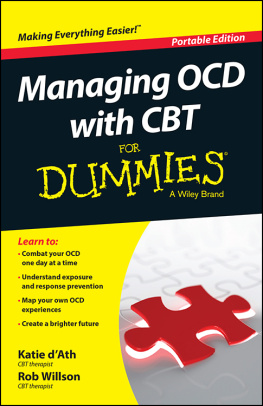

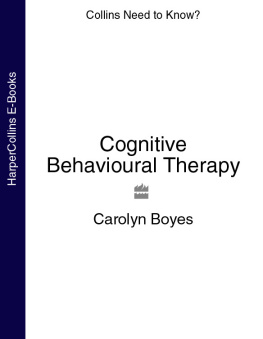

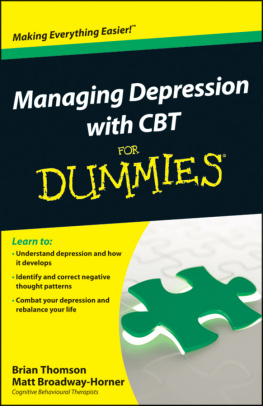
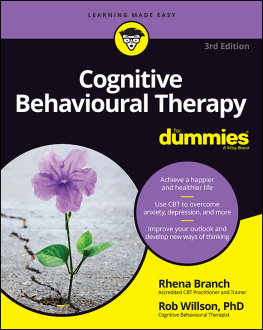
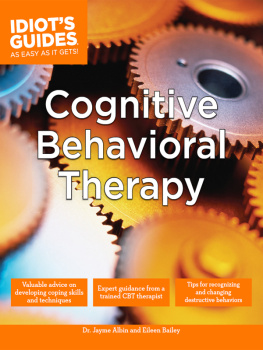
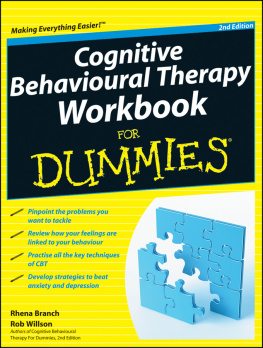
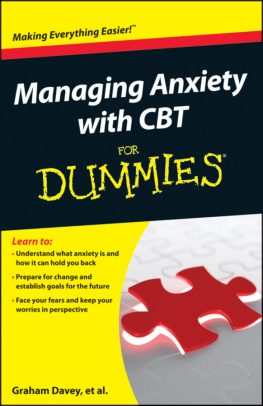

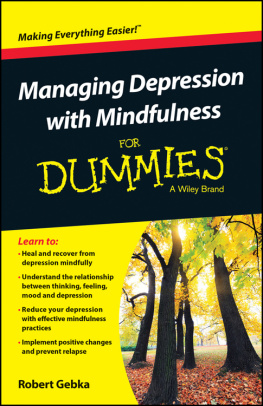
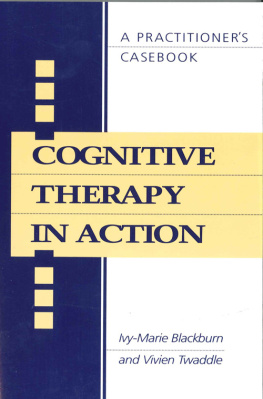
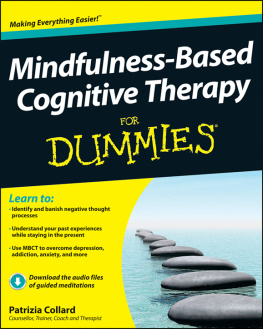


 This icon suggests a practical thing to do or try in order to help you put whatever were talking about into practice.
This icon suggests a practical thing to do or try in order to help you put whatever were talking about into practice. The Remember icon prompts you to pause and take note of something that is particularly important and worth committing to memory.
The Remember icon prompts you to pause and take note of something that is particularly important and worth committing to memory. A Warning highlights typical pitfalls that are worth watching out for. Dont worry; its very common to fall foul of these. Thats how we know to point them out to you.
A Warning highlights typical pitfalls that are worth watching out for. Dont worry; its very common to fall foul of these. Thats how we know to point them out to you. The OCD Demon icon gives an example of the sort of argument your OCD may come up with to try and put you off or derail you. There are many ways OCD tries to do this, so dont worry if yours comes up with a different argument. Just notice that its your OCD talking and take the words with a bucket of salt!
The OCD Demon icon gives an example of the sort of argument your OCD may come up with to try and put you off or derail you. There are many ways OCD tries to do this, so dont worry if yours comes up with a different argument. Just notice that its your OCD talking and take the words with a bucket of salt!